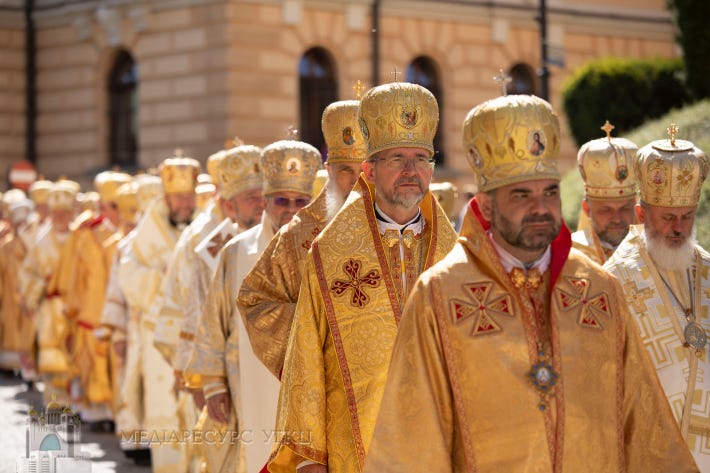War, refugees dominate bishops' talk at Ukrainian Catholic synod on synodality meeting
News: Ukraine
Before the Russian invasion earlier this year, most members of the Ukrainian Greek Catholic Church (UGCC) lived in Ukraine.
But with more than 12 million Ukrainians fleeing their homes in the last six months, the UGCC is finding many of its members scattered. Both those who have left and those who remain are suffering.

